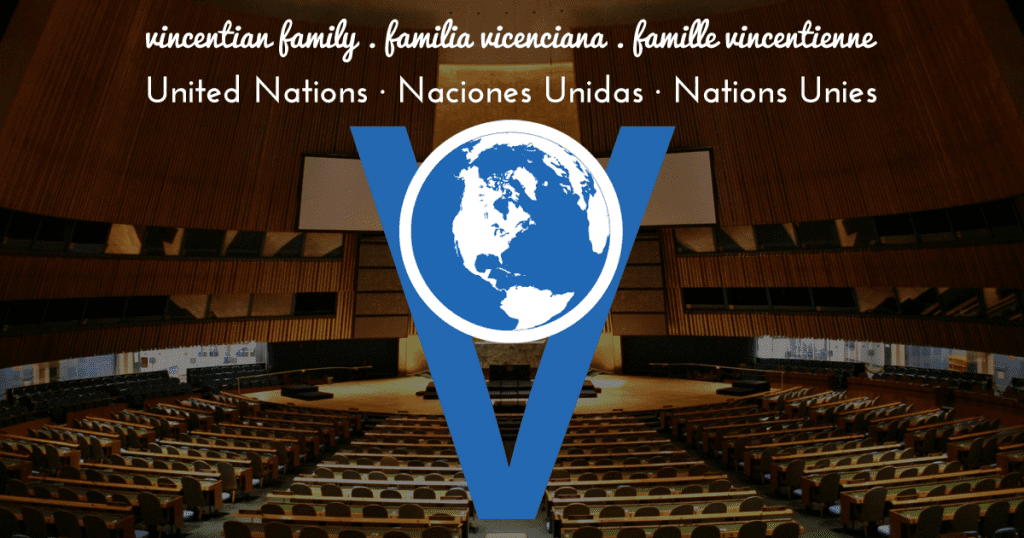As I read the article by Fr. Memo on the World Day of the Poor, celebrated in our Church this week, I could not help but think sadly of women in poverty. A majority of people who are poor are women. The expression, “The Feminization of Poverty” is used to describe this phenomenon. Women are a majority of the poor and they enjoy to a much lesser extent the fundamental rights of human beings than those who are not poor… and yes, as Fr. Memo pointed out, ordinarily their voices are ignored with cynicism in our society.
Women make up 70% of the world’s 1.5 billion people living in absolute poverty (earning less than $2 USD a day). They perform 66% of the world’s work, produce 50% of the food, but earn 10% of the income and own 1% of the property. Two thirds of illiterate adults are women and a majority of the children who are not attending school are girls. Every minute a woman dies of complications related to pregnancy or childbirth (more than 500,000 women every year). One in three women is beaten, coerced into sex or otherwise abused by an intimate partner in the course of her lifetime. Each year nearly a half a million women and young girls are forced into the illegal trade in humans.

The UN has recently employed a new model of measuring poverty, which evaluates multiple indicators of impoverishment. The Multidimensional Poverty Index (MPI) considers health, education and living standards to categorize people into poverty levels. When these other factors are considered, women fare even worse than in indexes using only the “dollars per day” model.
There are many reasons women tend to be poorest people in the world. These reasons are rooted in just “being” a woman. Lower wages, failed social safety nets, fewer educational opportunities, substandard health care, a lack of employee protections and benefits, such as paid maternity leave and child care all contribute to the problem. In addition, women typically are the primary caretakers of children and elders, which also makes them more vulnerable to impoverishment as they have less time to earn money outside the home.
Because women spend more time doing unpaid work within the home, performing housework and child care, they have less time to spend doing paid work outside the home, although studies have shown that, overall, women spend more time working overall than men do. In developing countries women spend much of their unpaid time performing heavier physical chores such as collecting water and fuel and growing and harvesting crops, leaving them even less time for paid work as well as for child care.
Women in both developing and developed countries sometimes are forced to migrate to other areas, regions, or even countries to find paid work. This might mean leaving a rural home to work in a city (or vice versa) or migrating from, for example, a country like Mexico to perform seasonal farm work in a country like the United States. In either case, a woman who migrates for work will have to find someone to care for her family while she is away. At the same time, however, women who have children often are not able to migrate to regions with better work opportunities.
Women’s traditional role as caretakers within the home has led to a narrow choice of work outside the home. These occupations tend to be relatively unstable, informal, lower-paying, and, in some cases, more dangerous than other jobs.
“Women’s work,” meaning the kind of work that women typically do for free within their homes and communities, and often seek outside the home such as child care or elder care, generally is considered less valuable than work that is perceived to require more training or education. Therefore, it is less regulated and brings in lower pay.
Fr. Memo, encouraged each member of the Vincentian Family “to remember its fundamental vocation: to be close to the poor, to hear their cries and from there be the presence of God who, with our ears, listens to them, and who also helps them by using our own hands, our compassion, our systemic action and our political advocacy.”
As we enter this season where are thoughts are focused on the Incarnation, let us ponder the wonder of women and the need to recognize their human rights and need for social protections. Let us listen carefully to the cries of poor women and seek to work with them to change their reality one of dignity and hope.
Mary Ann Dantuono – AIC NGO Representative to UN-NY







0 Comments